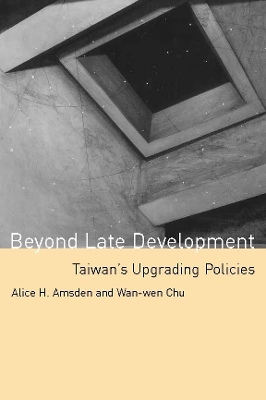The MIT Press
2 total works
In Escape from Empire, Alice Amsden argues provocatively that the more freedom a developing country has to determine its own policies, the faster its economy will grow. America's recent inflexibility -- as it has single-mindedly imposed the same rules, laws, and institutions on all developing economies under its influence -- has been the backdrop to the rise of two new giants, China and India, who have built economic power in their own way. Amsden describes the two eras in America's relationship with the developing world as "Heaven" and "Hell" -- a beneficent and politically savvy empire followed by a dictatorial, ideology-driven one. What will the next American empire learn from the failure of the last? Amsden argues convincingly that the world -- and the United States -- will be infinitely better off if new centers of power are met with sensible policies rather than hard-knuckled ideologies. But, she asks, can it be done?
A study of how latecomers catch up in high-tech industries and modern services, based on an in-depth analysis of Taiwan's premier enterprises and government policies.
In this book Alice Amsden and Wan-wen Chu cover new ground by analyzing the phenomenon of high-end catch-up. They study how leading firms from the most advanced latecomer countries like Taiwan have increased their market share in mature high-tech industries and services.
The profits that true innovators in these industries once enjoyed have already declined, but profit rates are still above average. The latecomer firm that succeeds in capturing these rents earns "second-mover" advantage. Amsden and Chu examine the successful second movers in electronics and modern services. The critical factors, they show, are the government policies and large-scale firms that drive skills, speed, and scale. R&D in Taiwan was usually undertaken in conjunction with government labs, which prepared the way for local production of the next hot, mature product. Speed in ramping up at the firm level depended on project execution capabilities and access to capital. Scale proved to be an absolute entry requirement in modern service sectors, and was crucial to win subcontracts from leading foreign firms and to secure key components from world-class suppliers in the electronics industry.
The authors challenge current orthodoxy along two lines. First, they argue that government played an important role through interventions that went beyond the market model and overcame the limitations of networking. Interventions possibly promoted mature high-tech even more than mid-tech. Second, the entrepreneurs in Taiwan were nationally owned large-scale firms rather than multinational companies.

